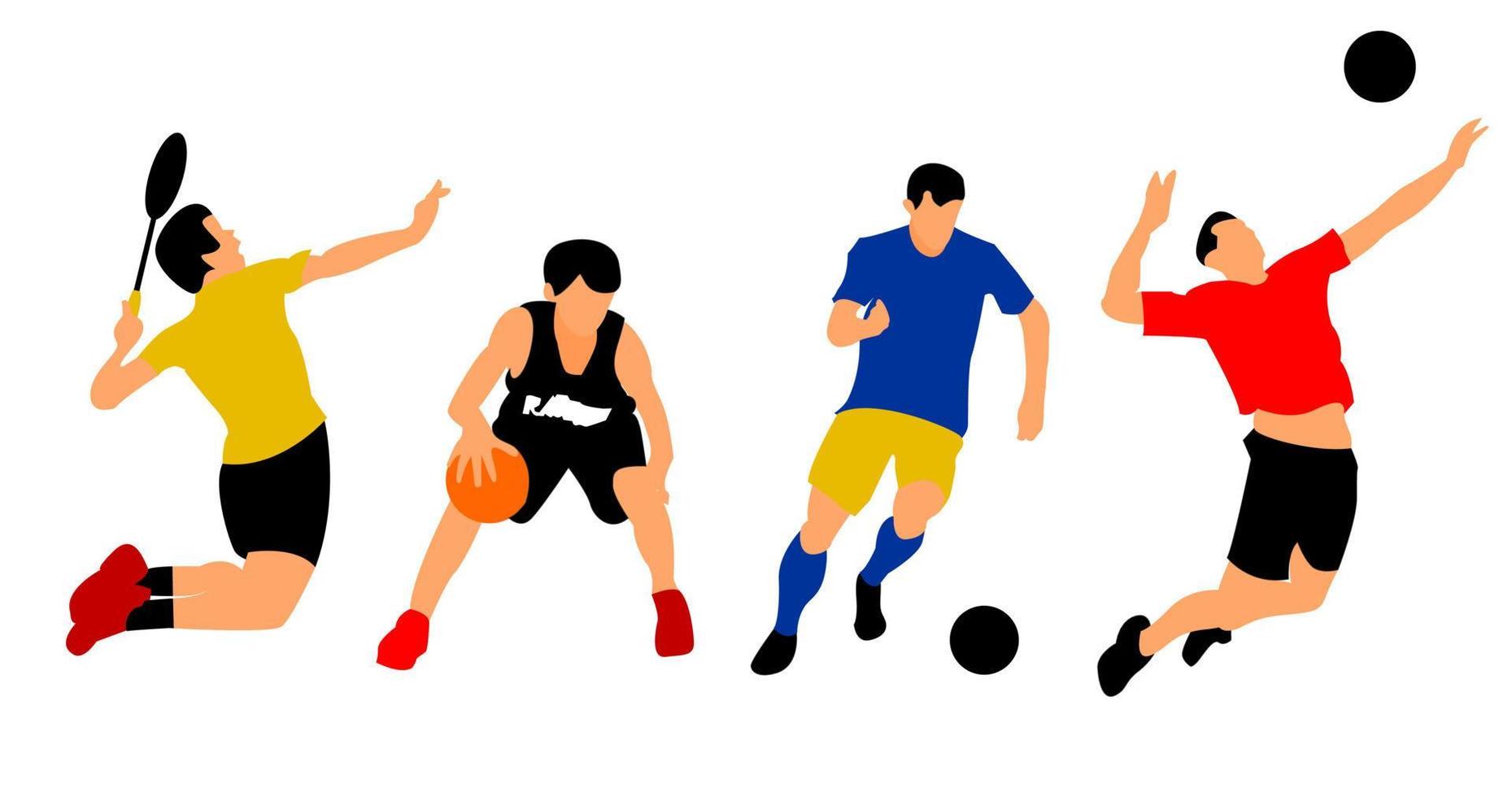Career Tips
Top Sports Management Jobs 2024

A job in sports management can be fulfilling, as you work with athletes, coaches, and other sports people to build excellent teams and programs. The majority of positions in this industry require a degree in sports management or a closely connected discipline. Depending on your area of interest, you can branch out into other fields within sports management. In this post, we will look at some of the most prevalent sports management occupations, including average pay and usual tasks.
Common sports management jobs
If you want to work in the athletics industry and/or have a sports management degree, consider these pursuing one of these sports management careers:
- Sports event coordinator
- Sports marketing coordinator
- Fitness manager
- relations manager
- Marketing consultant
- Athletic director
- Business development manager
- Marketing manager
- Facilities manager
- Operations manager
- Contract negotiator
1. Sports event coordinator
- National average salary: $15.79 per hour
A sports event coordinator is in charge of planning, preparing, and coordinating events at a sports venue. Some of the primary responsibilities include facility inspection, ticket sales promotion, event and facility preparation, security maintenance, data research, media distribution, and work delegation to employees.
Because of the range of people with whom an event organizer interacts on a daily basis, problem-solving and negotiation skills are critical to success. A sports event coordinator must be able to adjust swiftly to changing circumstances and settle problems efficiently. The ability to multitask is critical, and great communication skills are required.
2. Sports marketing coordinator
- National average salary: $44,160 per year
A sports marketing coordinator aids the marketing manager in carrying out marketing efforts. Sports marketing coordinators are responsible for a variety of tasks, including planning advertising campaigns, assisting with facility promotions, calculating advertising expenditures, marketing athletes, and coordinating marketing efforts across departments. Because of the large number of people they interact with on a daily basis, a marketing coordinator must acquire great communication skills.
Understanding a variety of marketing and advertising methods is beneficial due to the number of advertising mediums available, which include print, television, and online advertising. As a sports marketing coordinator, you could be balancing an advertising budget one day and overseeing the creation of a brand commercial the next.
3. Fitness manager
- National average salary: $49,844 per year
A fitness manager can work for fitness clubs, hotel chains, corporate fitness centers, or educational organizations. A fitness manager is frequently the direct supervisor of the entire personnel of a fitness facility. Some responsibilities include training and managing fitness personnel, keeping financial records, managing budgets, maintaining fitness equipment, promoting the business, offering a variety of fitness programs, and dealing with business-related emergencies and complaints.
Depending on the size of the facility, a fitness manager may perform the majority of these tasks or delegate many of them to other fitness professionals. A fitness manager’s principal responsibilities are to maintain excellent levels of client service and increase profitability.
4. Public relations manager
- National average salary: $55,078 per year
A sports public relations manager oversees all public relations for a team, venue, or individual athlete. A public relations manager in the sports management profession is responsible for a variety of tasks such as public speaking, preparing press releases, marketing the business or individual, creating website content, performing damage control, and improving their clients’ image.
A public relations manager’s major responsibility, in addition to a range of other activities, is to manage the connection between their client and the general public. As a manager, you will be responsible for assembling a team and overseeing a public relations department in order to maintain an athlete or team’s professional image.
5. Marketing consultant
- National average salary: $56,229 per year
The major role of a sports marketing consultant is to develop marketing strategies and alter them as necessary. They counsel their clients based on their individual goals and issues, and they will identify and develop marketing campaigns to better serve them. A sports marketing consultant will have a wide range of strategies that they can use as needed.
A sports marketing consultant will have a variety of responsibilities depending on the consulting firm they work for or the business they manage. They can choose to work for a corporation or on their own. A marketing consultant primarily advises businesses and athletes on marketing and branding initiatives. When a sports marketing consultant works with an athlete, their responsibilities may include managing and brokering sponsorships, endorsements, and publicity.
6. Athletic director
- National average salary: $57,830 per year
An athletic director is the leader of a college, university, or high school’s athletic department, and he or she oversees all or most of the department’s daily operations. The athletic director’s responsibilities include developing and maintaining budgets, coordinating trips, and, in many cases, directing sports department personnel.
Depending on the size of the high school or college, an athletic director may take a supervisory or more direct approach, handling activities such as procuring equipment and maintaining finances.
The most important responsibility of an athletic director is to manage public relations. In the event of media scrutiny of events such as injuries and sports team decisions, the athletic director may act as a public relations professional, managing the relationship with the public. A effective athletic director may have communication, organizational, and planning skills.
7. Business development manager
- National average salary: $68,458 per year
This position requires direct communication with the marketing and advertising departments. As a manager, you supervise a business development team that may undertake responsibilities such as developing strategies to boost fan base, developing partnerships with sponsors or supporters of the club or league, performing market research, and overseeing revenue growth.
A business development manager works with a variety of departments and leads a development team to promote client satisfaction.
To be productive in the workplace, business development managers must be able to manage their time, communicate, and organize.
8. Marketing manager
- National average salary: $61,136 per year
A sports marketing manager is responsible for coordinating the marketing activities of individual players, teams, and events. Sports marketing managers typically work for marketing firms and have advanced into management after years of experience in related roles such as marketing coordinators and consultants. A sports marketing manager’s major responsibility is to promote athletes, teams, and athletic events by connecting them with sponsors and advertising possibilities.
Sports marketing managers have a variety of responsibilities, including publicizing athletic events, developing relationships with corporate representatives, and exploring sponsorship opportunities for teams, events, and individuals. A marketing manager can take on a more supervisory position, allowing the marketing coordinator and other marketing personnel to handle the majority of the daily marketing tasks. They can also participate in as much of the marketing process as they choose.
9. Facilities manager
- National average salary: $61,866 per year
Sports facilities managers are responsible for the operations of sports stadiums, facilities and arenas. A facilities manager will be involved in a variety of day-to-day tasks, including planning and coordinating events, leasing, buying and selling facilities, supervising sports facilities staff, redesigning and constructing facilities and other managerial tasks.
A facilities manager will commonly have many tasks involving operation, coordination, supervision, planning, staffing, regulations and management. Depending on the facility, some facilities managers will take responsibility for everything that happens within the facility. Other managers might only work with a handful of daily operations while delegating many tasks to others.
Becoming a facilities manager usually requires years of experience and a variety of skills. Strategic and operational skills are a must, and most facilities managers will possess exceptional communication and leadership skills.
10. Operations manager
- National average salary: $62,321 per year
An operations manager handles the operation of a sporting event in a sports facility and manages everything that happens before, during and after game day. Some duties of a game operations manager include establishing budgets, coordinating staff needs, timing events, booking entertainment, training employees and overseeing music selections.
Ensuring events run smoothly is the primary duty of game operations and maintaining profitability by overseeing budgets are other critical aspects of an operations manager’s duties.
11. Contract negotiator
- National average salary: $71,448 per year
A contract negotiator is a professional who negotiates contracts with teams on behalf of their athlete clients. A contract negotiator is responsible for a variety of tasks, including marketing and endorsements, developing trustworthy relationships with clients, recruiting athletes, signing contracts with athletes, complying with rules and regulations, understanding business ethics, and contract management.
Although a contract negotiator has several responsibilities, the major one is to negotiate and successfully sign a contract between the client and an organization. To continue a successful career as a contract negotiator, a negotiator must maintain relationships with their customers and the organizations in which they work.
FAQs
What’s the job outlook like for sports management jobs?
According to the Bureau of Labor Statistics, entertainment and sports occupations may expect a 13% growth from 2021 to 2031. This is much faster than the average growth rate of 5% for all occupations.
How can I find a role in sports management?
To get a career in sports management, you can start by earning a relevant bachelor’s degree. You can major in topics like sports management, business administration, sports and fitness administration or exercise physiology. Then, use the skills and expertise you gain during your college education to find entry-level roles in sports administration so you can work up to a management role.
What are some important skills for sports management?
These are some important skills for sports management:
- Business acumen
- Time management
- Negotiation
- Writing
- Communication
- Organization
- Time management












